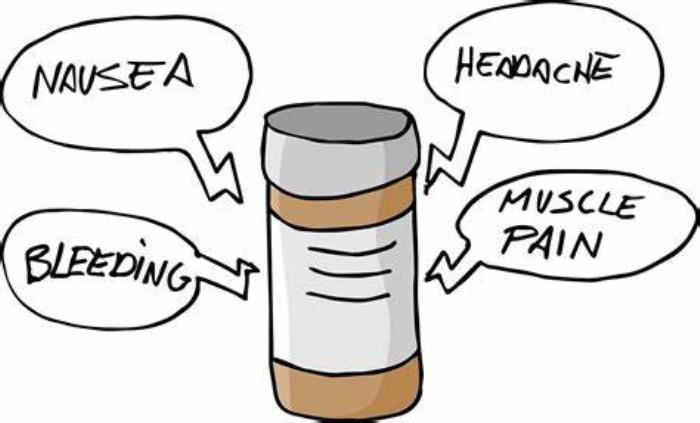Introduction: The Importance of Medication Management After Tetralogy of Fallot Repair
Medication management is a critical aspect of post-surgical care following Tetralogy of Fallot (TOF) repair. After surgery, medications play an essential role in supporting the patient's recovery, preventing complications, and ensuring that the heart and other systems heal properly. Given the complexity of the surgery and its effects on the cardiovascular system, careful selection and administration of medications can significantly impact recovery time, reduce risks of infection or complications, and improve long-term outcomes.
Medical disclaimer: This content is for general awareness and does not replace a doctor’s consultation. For diagnosis or treatment decisions, consult a qualified specialist.
Common Medications Prescribed After Tetralogy of Fallot Surgery
Several medications are commonly prescribed after Tetralogy of Fallot surgery, each aimed at supporting different aspects of recovery. These medications can include pain relievers, antibiotics, and drugs to support heart function, among others. The specific medications will vary depending on the patient's age, overall health, and any underlying conditions. In general, medication is tailored to manage pain, prevent infection, and promote the proper functioning of the heart, lungs, and circulatory system.
Pain Management: Medications to Ease Discomfort After TOF Repair
Pain management is one of the first concerns after Tetralogy of Fallot surgery. Effective pain control helps ensure that the patient is comfortable, encourages better breathing, and supports early mobilization, which is essential for a successful recovery. Pain management typically starts with intravenous (IV) pain relievers in the immediate post-surgery period, and as the patient stabilizes, oral pain medications may be introduced. Acetaminophen, ibuprofen, or stronger opioids may be used, depending on the severity of the pain. Nurses and doctors will assess the patient's pain regularly and adjust medications to achieve the best results.

Antibiotics and Infection Prevention Following Tetralogy of Fallot Surgery
After any heart surgery, including Tetralogy of Fallot repair, infection prevention is a top priority. Antibiotics are often prescribed to reduce the risk of infection, particularly at the surgical site or in the heart valves, which may be vulnerable after surgery. Prophylactic antibiotics are typically given during and immediately after surgery to prevent bacterial infections. Depending on the patient’s condition and the surgical approach, additional antibiotics may be prescribed for a short period following discharge, especially if there are any signs of infection or if the patient is at higher risk for developing infections.
Medications to Support Heart Function After Surgery
Heart function support is critical following Tetralogy of Fallot surgery. Medications to help regulate heart rhythm, improve blood pressure, and support overall heart performance are commonly used. Beta-blockers may be prescribed to manage the heart rate and reduce strain on the heart. In some cases, medications to help strengthen heart contractions, such as inotropes, may be used temporarily to assist in heart function. Close monitoring will guide the healthcare team in adjusting these medications as the patient’s heart adapts to the surgical repair.
Anticoagulants: Preventing Blood Clots Post-Surgery
Anticoagulants (blood thinners) are frequently prescribed after Tetralogy of Fallot surgery to prevent the formation of blood clots, which could lead to complications such as stroke or deep vein thrombosis (DVT). These medications work by thinning the blood, making it less likely for clots to form. Common anticoagulants used include warfarin or newer options like direct oral anticoagulants (DOACs). The duration of anticoagulant therapy will depend on the patient's individual risk factors and the specific surgical procedure, with some patients requiring short-term treatment and others needing longer-term management.
Diuretics: Managing Fluid Retention After TOF Repair
Diuretics, or “water pills,” are often prescribed to help manage fluid retention after Tetralogy of Fallot surgery. After surgery, patients may experience swelling or fluid buildup due to changes in the heart’s function or the use of medications like steroids. Diuretics help the kidneys remove excess fluid from the body, which can reduce swelling and prevent complications such as pulmonary edema, a condition in which fluid accumulates in the lungs. The use of diuretics is carefully monitored to prevent dehydration and ensure the patient’s electrolyte balance remains stable during recovery.
ACE Inhibitors and Beta-Blockers: Supporting Long-Term Heart Health
After Tetralogy of Fallot (TOF) surgery, medications such as ACE inhibitors and beta-blockers are often prescribed to support long-term heart health. ACE inhibitors help relax blood vessels, reduce blood pressure, and decrease the heart’s workload, making them useful in preventing heart failure or managing pulmonary hypertension. Beta-blockers work by slowing the heart rate, reducing blood pressure, and improving heart function. Both types of medications can help prevent complications such as arrhythmias and protect the heart from further strain post-surgery.
How to Administer Medications: Dosage, Timing, and Frequency
Proper medication administration is essential for successful recovery and long-term heart health. Follow the prescribed dosage, timing, and frequency exactly as directed by the healthcare provider. Set reminders to ensure doses are not missed. For pediatric patients, it may be necessary to crush or dilute medications to make them easier to take. Always consult with the healthcare team if any confusion arises about the medication regimen or how to properly administer it.
Potential Side Effects of Medications After Tetralogy of Fallot Surgery
Medications prescribed after Tetralogy of Fallot surgery can have side effects, which may include dizziness, fatigue, nausea, or digestive upset. ACE inhibitors can sometimes cause a persistent cough, elevated potassium levels, or low blood pressure. Beta-blockers may lead to fatigue, cold hands or feet, or a slow heart rate. Regular monitoring and communication with the healthcare provider can help manage these side effects and adjust medication if necessary.
The Role of Painkillers and Sedatives in Early Recovery
Painkillers and sedatives play a crucial role in managing pain and anxiety in the immediate post-surgery period. Painkillers such as acetaminophen or ibuprofen may be prescribed to manage discomfort, while sedatives may be used to help the child relax or sleep after surgery. It’s important to follow dosage instructions carefully and report any unusual reactions to medications. These medications are typically used for a short time to aid in recovery and ensure a comfortable healing process.
The Importance of Adhering to a Medication Schedule After Surgery
Adhering to the prescribed medication schedule is essential for optimal recovery and long-term heart health. Missing doses or taking medications at the wrong times can affect the effectiveness of treatment and increase the risk of complications. Parents should work with healthcare providers to establish a routine for medication administration and track doses to ensure consistency. Use pillboxes or medication reminders to stay on track.

Managing Medication for Coexisting Conditions After TOF Repair
Many children who undergo TOF surgery may have coexisting conditions that require additional medication, such as pulmonary hypertension, arrhythmias, or gastroesophageal reflux disease (GERD). It is important to manage these medications alongside those for heart function. A pediatric cardiologist or a team of specialists will coordinate the treatment of these conditions to ensure that all medications work well together without harmful interactions.
Regular Monitoring: Blood Tests and Other Tests to Track Medication Effectiveness
Regular blood tests, urine tests, and other diagnostic exams are crucial to monitor the effectiveness of medications and ensure that they are not causing harmful side effects. Blood pressure, electrolyte levels, and kidney function should be monitored to track the body’s response to heart medications. Patients may also need routine echocardiograms or ECGs to assess heart function and adjust medications as needed.
Medication Adjustments: When to Consult a Doctor for Changes
Sometimes medications need to be adjusted based on the patient’s response. If there are signs of side effects, such as excessive fatigue, dizziness, changes in heart rate, or swelling, it is important to consult the healthcare provider. Regular check-ups will allow for medication adjustments to ensure the most effective treatment. Never stop or adjust medication without first consulting the doctor, as abrupt changes can lead to complications.
How to Prevent Medication Interactions and Overdosing
To prevent medication interactions and overdosing, make sure the entire healthcare team is aware of all medications the patient is taking, including over-the-counter medications, supplements, and any other prescriptions. It is essential to avoid self-medicating and to follow the doctor’s instructions precisely. For pediatric patients, keeping medications locked and out of reach is crucial to prevent accidental ingestion. Regular consultations with the healthcare provider can help prevent any dangerous interactions.
Managing Medications for Pediatric Patients Post-Tetralogy of Fallot Repair
For pediatric patients, managing medications involves ensuring that doses are age-appropriate and safe. This may involve using liquid formulations of medications or adjusting dosages based on the child’s weight. Parents should be educated on proper medication administration, potential side effects, and how to manage the child’s medications effectively. Regular visits to the pediatric cardiologist are important for evaluating the child’s progress and adjusting treatment plans as needed.
Long-Term Medication Considerations for Adults Who Had TOF Surgery as Children
For adults who had Tetralogy of Fallot surgery as children, long-term medication may continue to be necessary, especially for managing heart function or preventing complications like arrhythmias, pulmonary hypertension, or heart failure. Regular monitoring of heart function, including echocardiograms and electrocardiograms, is important to adjust medications as needed. These adults may also require medication to manage related health issues, such as hypertension or diabetes, which could be exacerbated by long-term heart issues.
How Medication Management Impacts Recovery and Long-Term Outcomes
Effective medication management is crucial for both short-term recovery and long-term heart health following Tetralogy of Fallot surgery. Proper use of prescribed medications ensures that the heart and circulatory system continue to function optimally and that complications such as arrhythmias, heart failure, and infections are minimized. Consistent medication adherence, along with regular monitoring, can greatly improve the long-term quality of life for TOF patients.
Conclusion: Ensuring Safe and Effective Medication Use After Tetralogy of Fallot Repair
Proper medication management is a cornerstone of successful recovery and long-term health after Tetralogy of Fallot surgery. Following the prescribed medication schedule, monitoring for side effects, and maintaining regular check-ups with healthcare providers will ensure that the heart continues to function optimally and that any complications are detected early. Educating both parents and patients on the importance of medication adherence and monitoring is essential for the best possible outcomes.
Best Tetralogy of Fallot Surgery in India
The Best Tetralogy of Fallot Surgery in India offers a comprehensive surgical solution for children and adults with TOF, helping correct heart defects and improve oxygenation and quality of life.
Best TOF Surgery Surgeons in India
The Best TOF Surgery Surgeons in India are experts in treating complex congenital heart defects, providing patient-focused care and skilled surgical expertise for successful TOF correction.
FAQ
What medications are typically prescribed after Tetralogy of Fallot surgery?
Common medications prescribed after TOF surgery include ACE inhibitors, beta-blockers, pain relievers, and antibiotics to prevent infection. Medications for coexisting conditions, such as pulmonary hypertension or arrhythmias, may also be prescribed.
How can I manage pain medications during recovery from TOF surgery?
Pain medications should be administered according to the prescribed dosage and timing. Ensure that the child is comfortable and monitor for any side effects like drowsiness, nausea, or dizziness. Consult the doctor if pain management is inadequate or if side effects become concerning.
What should I know about taking antibiotics after TOF repair surgery?
Antibiotics may be prescribed to prevent infection after surgery. It’s important to complete the entire course as prescribed, even if symptoms improve. Ensure the correct dosage and timing are followed to prevent resistance or relapse of infection.
Are there any side effects associated with medications after Tetralogy of Fallot surgery?
Side effects can include dizziness, nausea, fatigue, and digestive upset. ACE inhibitors may cause a persistent cough, and beta-blockers can slow the heart rate. Always report any unusual side effects to the healthcare provider.
How can I monitor and manage my child’s medications post-surgery?
Track medication doses, timing, and any potential side effects. Use a medication calendar or pillbox to help ensure doses are not missed. Regular follow-ups with the healthcare provider will allow for adjustments and monitoring of medication effectiveness.